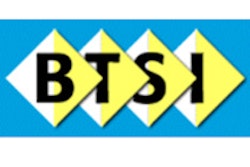Fueled by new radiopharmaceuticals to treat various forms of cancer, U.S. sales of therapeutic radiopharmaceuticals over the next several years could reach $5.8 billion by 2020, according to a new market research report from Bio-Tech Systems.
The anticipated market expansion would be substantial given that the study, authored by Bio-Tech Systems President Marvin Burns, estimates that U.S. sales of therapeutic radiopharmaceuticals stood at only at $244.9 million in 2012.
"There has been an increase in research activity to expand applications for therapeutic radiopharmaceuticals with serious commitment to the technology and definite plans to bring these products to market," Burns wrote.
There also are advantages to delivering targeted radiation to malignant cells with therapeutic radiopharmaceuticals compared with conventional therapies.
"It allows one to seek out and destroy diseased cells, while protecting healthy cells in the vicinity," he added. "In addition, the new generation of therapeutic radiopharmaceuticals employs more advanced targeting with antibodies and peptides linked to therapeutic isotopes that are optimized for each application."
The study also cited improvements in reimbursement and more liberal policies from the U.S. Food and Drug Administration (FDA) regarding the use of these products. The actions have "substantially improved the economic climate for investment and created more business opportunities in this field," Burns noted.
According to the study, 19 radiotherapy products are either approved or in development, with many research products financed by international companies with significant resources.
Increased international participation in this market would ensure "a steady supply of isotopes from available stockpiles in Europe and other parts of the world that are less subject to restrictions applicable to U.S. sources," according to the study. "This will provide stability in this field and increase the available options in selecting isotopes with optimum capabilities."
International companies also would be in a position to provide the necessary resources to support joint ventures and development programs in the U.S. This involvement would augment technological capabilities and experience that is available to develop effective new radiotherapeutic products.



















